The resentment that each child feels for the privileges of the other;
ADELE FABERRelated Topics
Anand Thakur

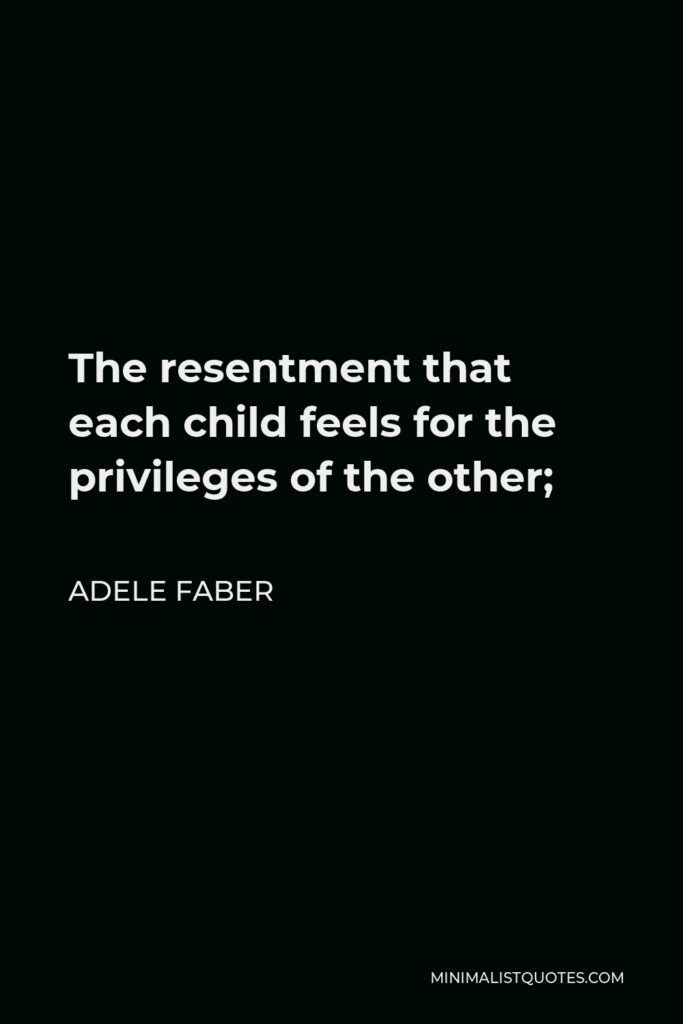

The resentment that each child feels for the privileges of the other;
ADELE FABER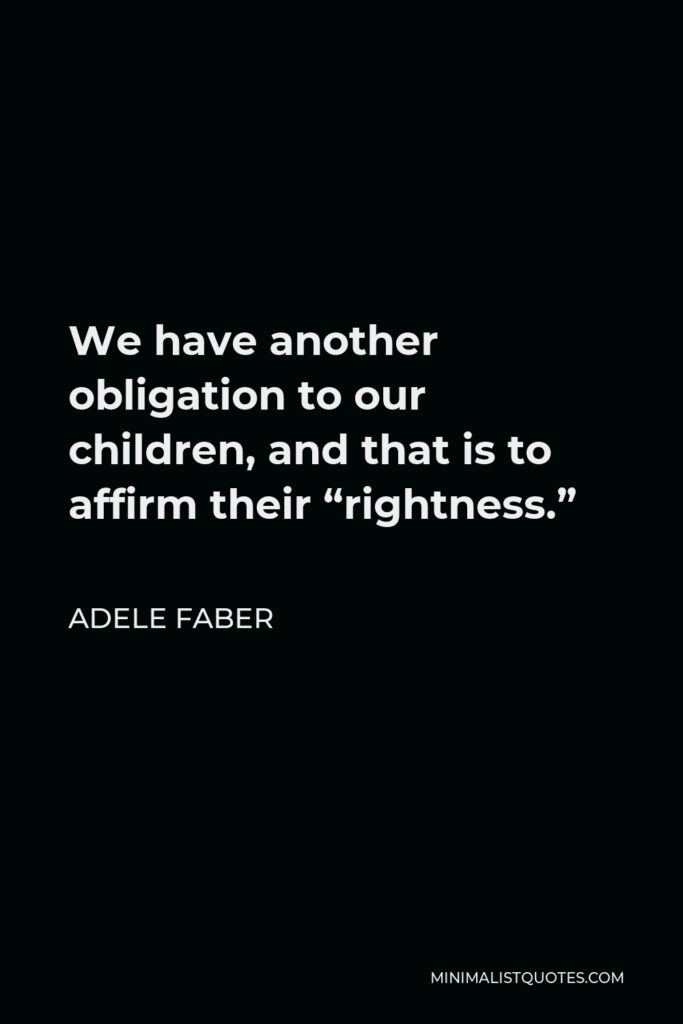

We have another obligation to our children, and that is to affirm their “rightness.”
ADELE FABER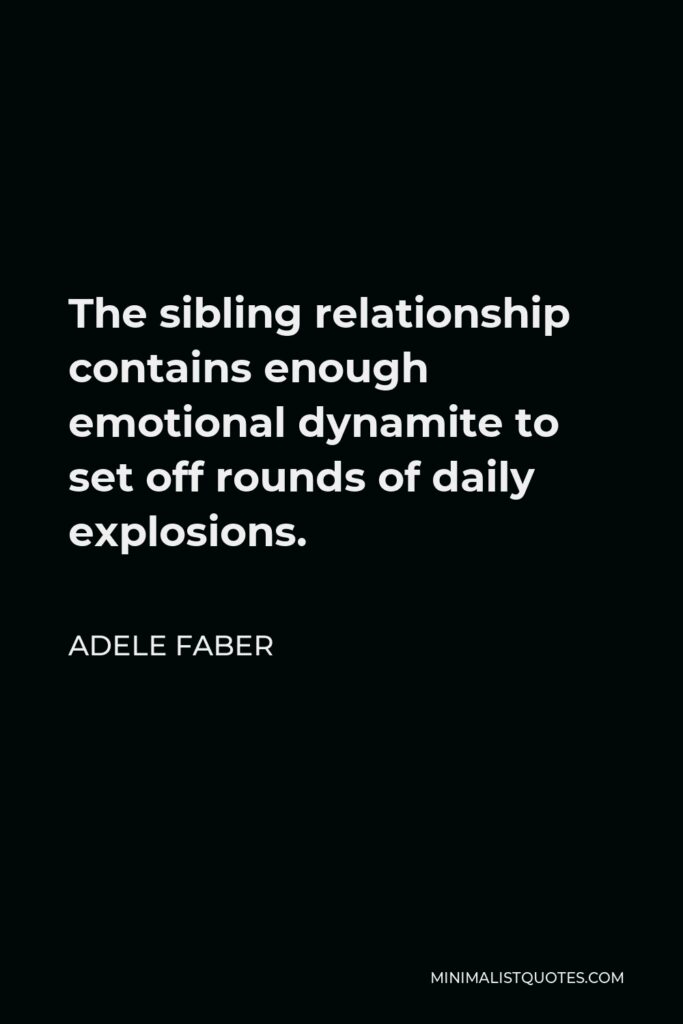

The sibling relationship contains enough emotional dynamite to set off rounds of daily explosions.
ADELE FABER

Comforters for our todays / Guardians of memories
ADELE FABER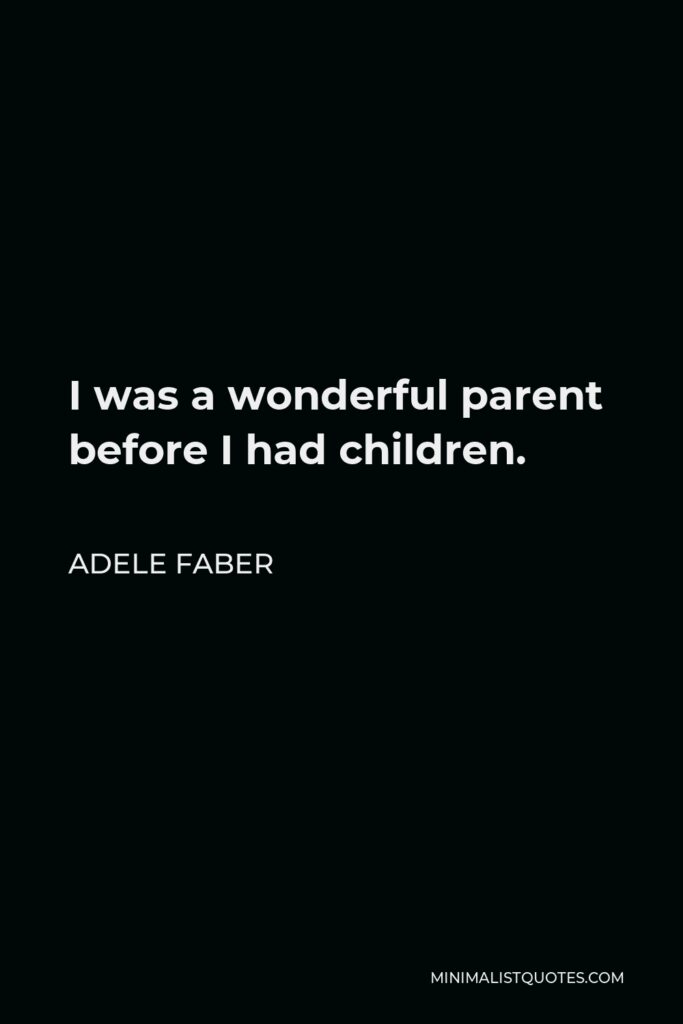

I was a wonderful parent before I had children.
ADELE FABER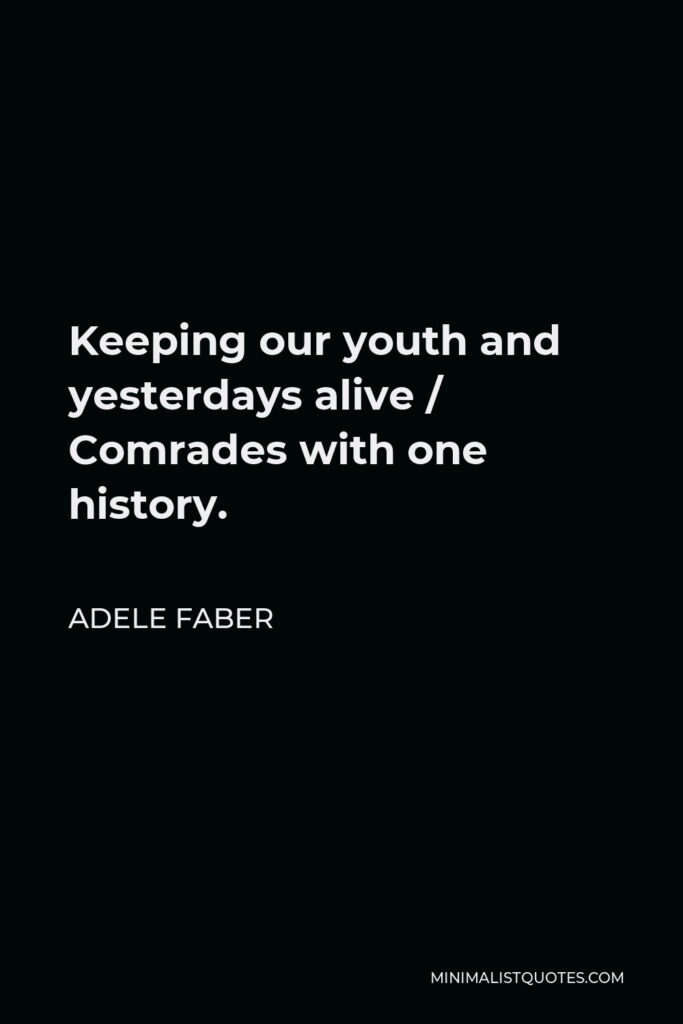

Keeping our youth and yesterdays alive / Comrades with one history.
ADELE FABER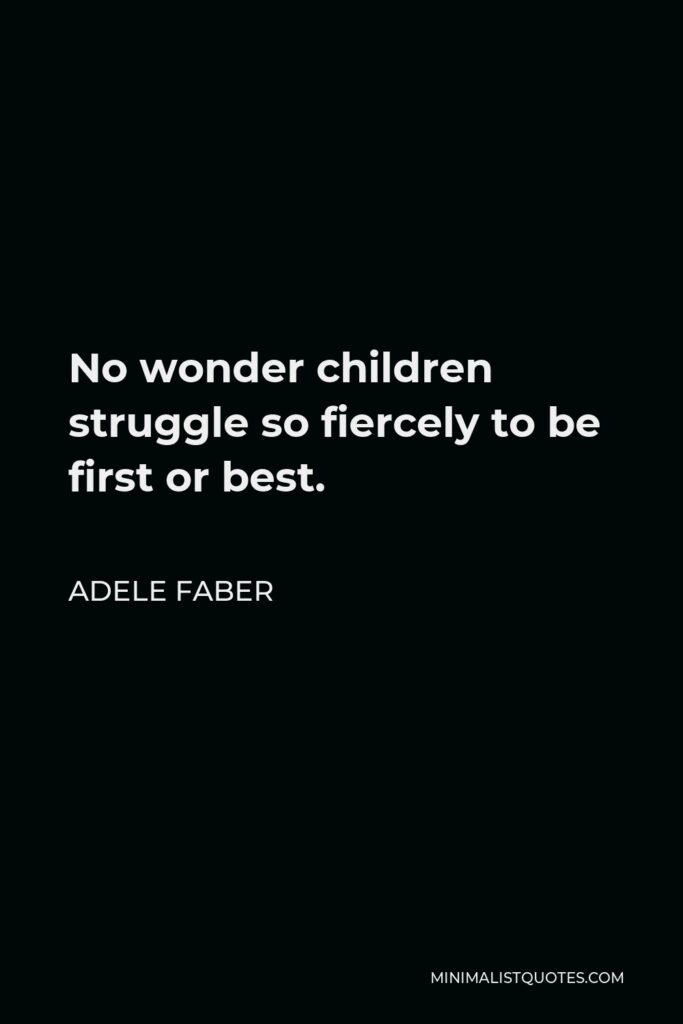

No wonder children struggle so fiercely to be first or best.
ADELE FABER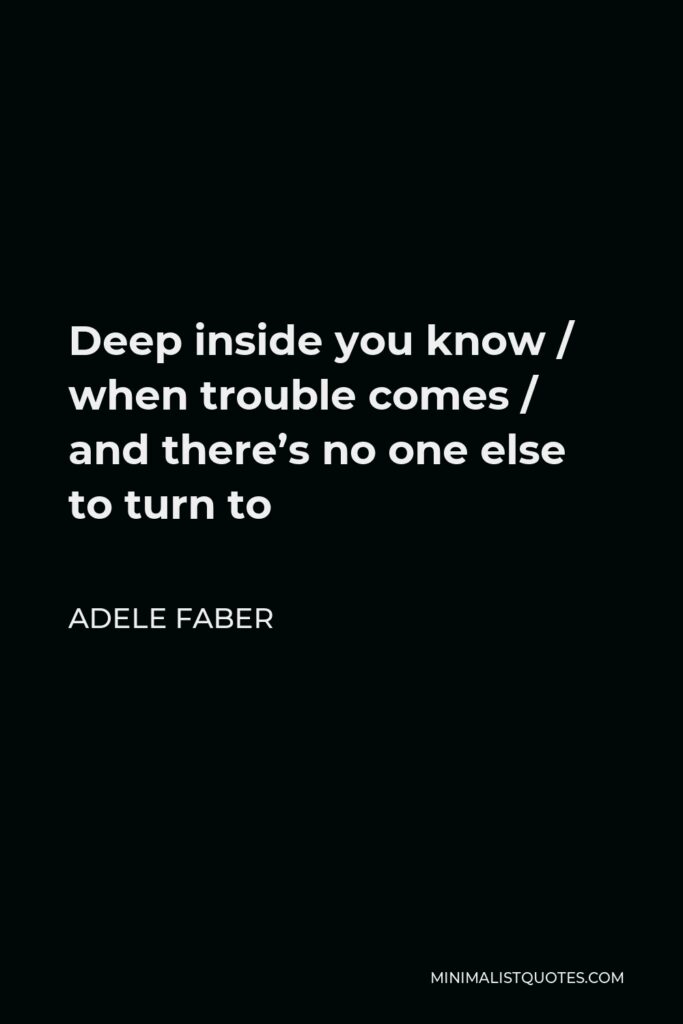

Deep inside you know / when trouble comes / and there’s no one else to turn to
ADELE FABER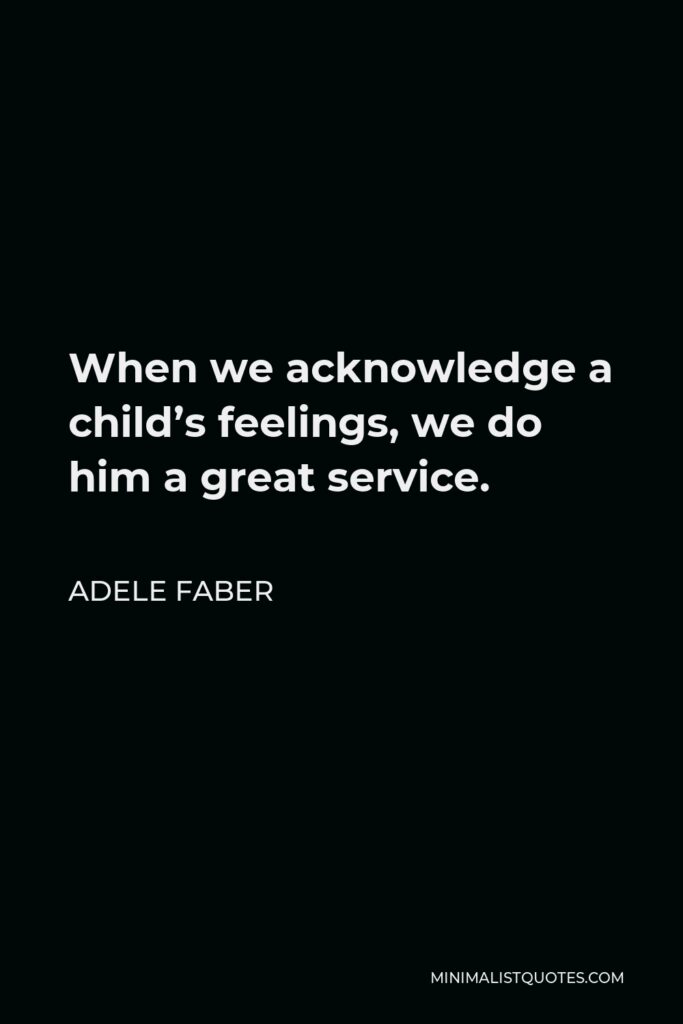

When we acknowledge a child’s feelings, we do him a great service.
ADELE FABER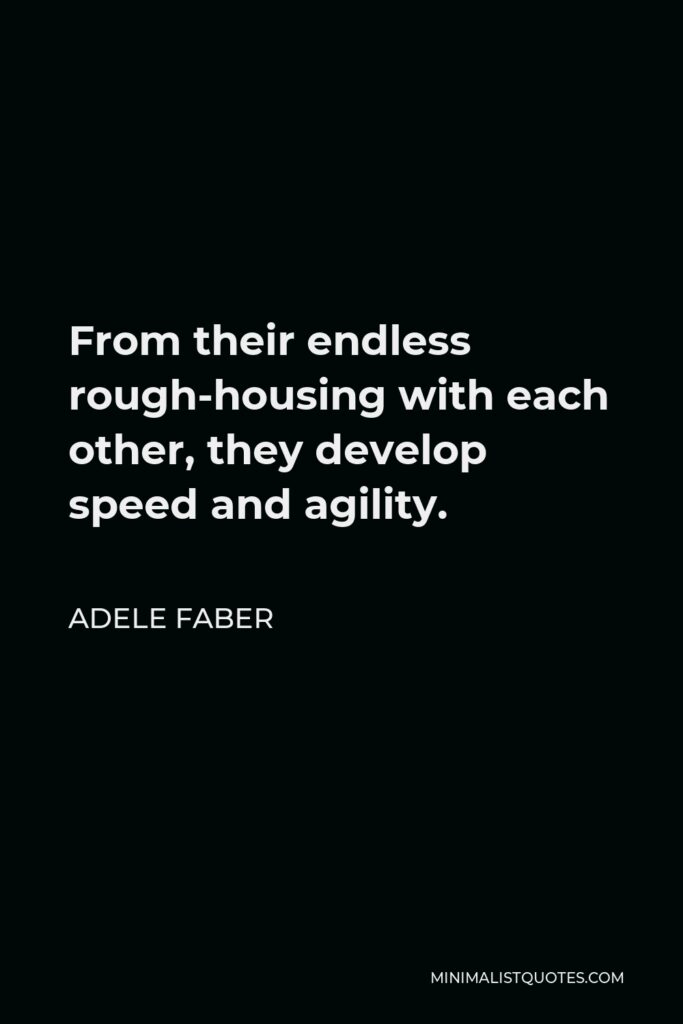

From their endless rough-housing with each other, they develop speed and agility.
ADELE FABER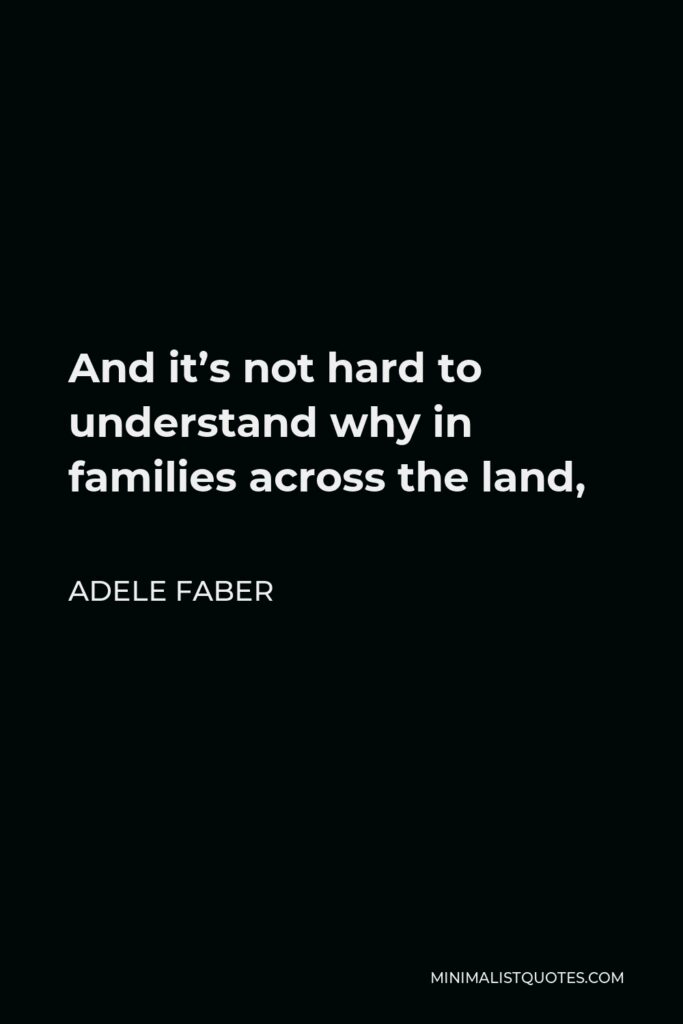

And it’s not hard to understand why in families across the land,
ADELE FABER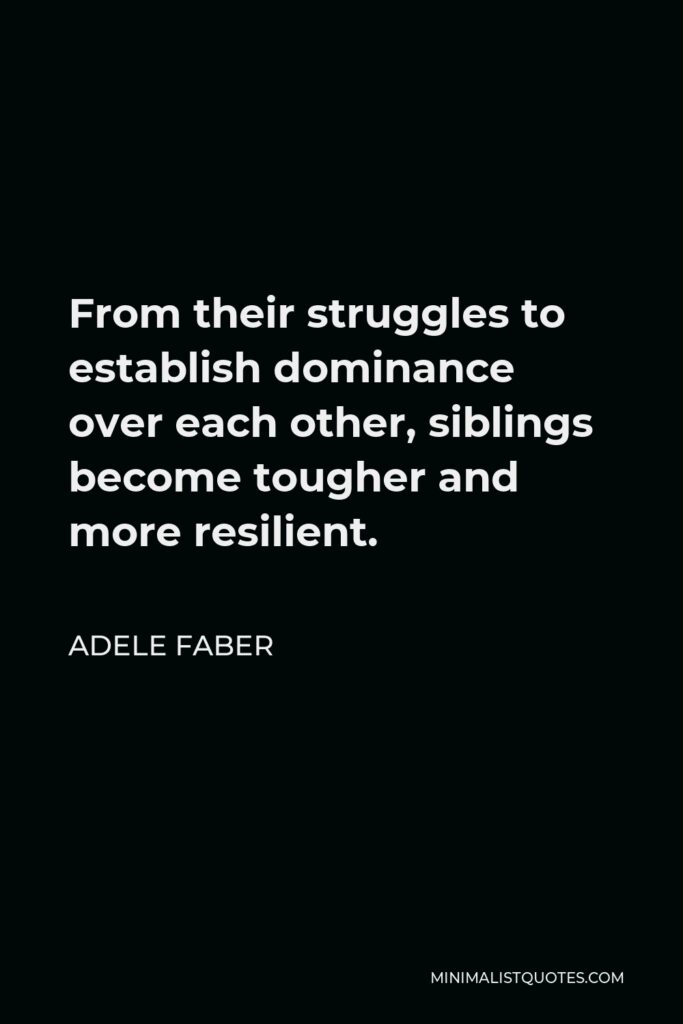

From their struggles to establish dominance over each other, siblings become tougher and more resilient.
ADELE FABER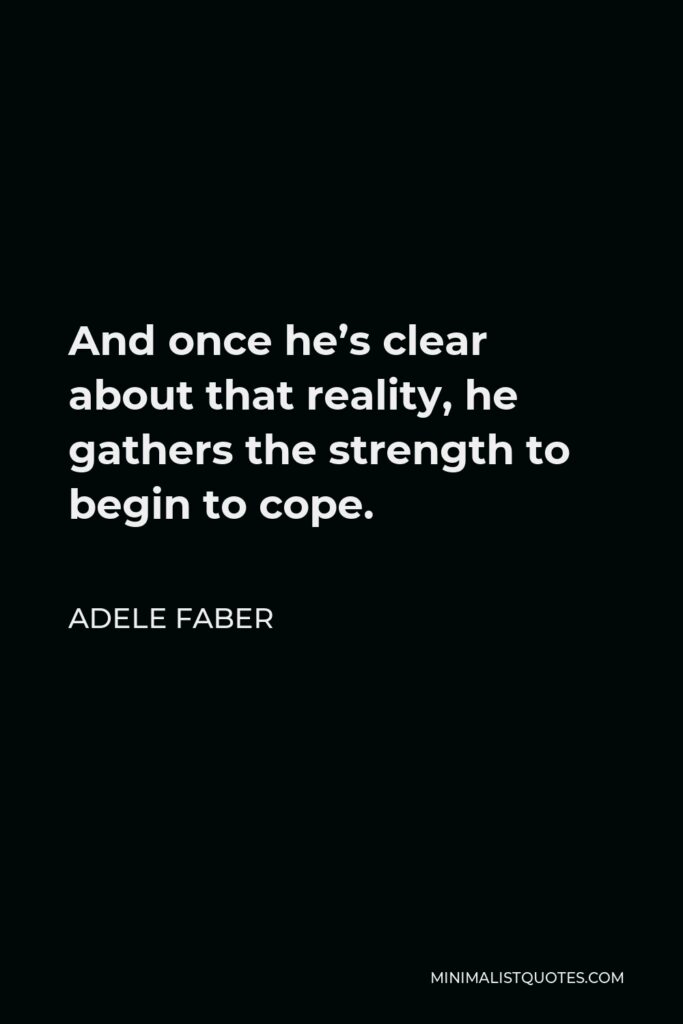

And once he’s clear about that reality, he gathers the strength to begin to cope.
ADELE FABER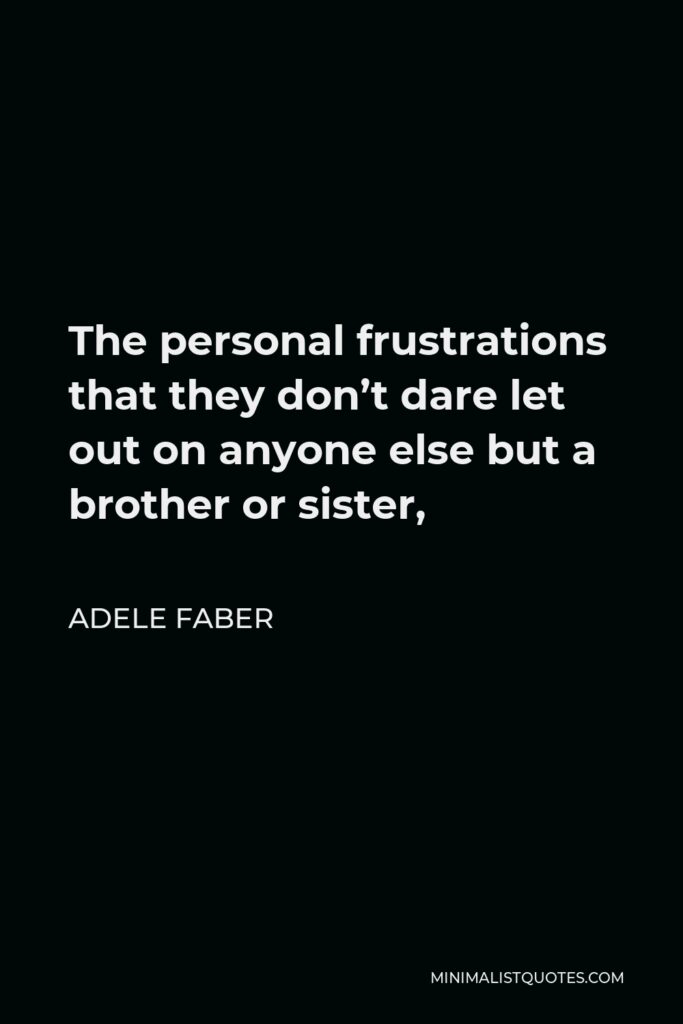

The personal frustrations that they don’t dare let out on anyone else but a brother or sister,
ADELE FABER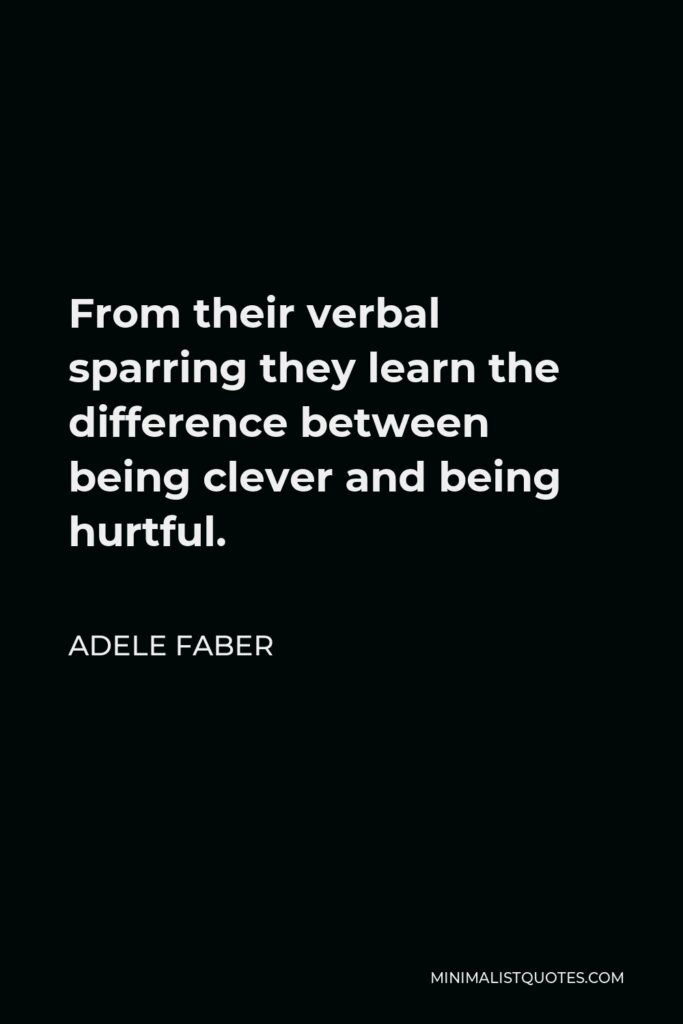

From their verbal sparring they learn the difference between being clever and being hurtful.
ADELE FABER

We put him in touch with his inner reality.
ADELE FABER